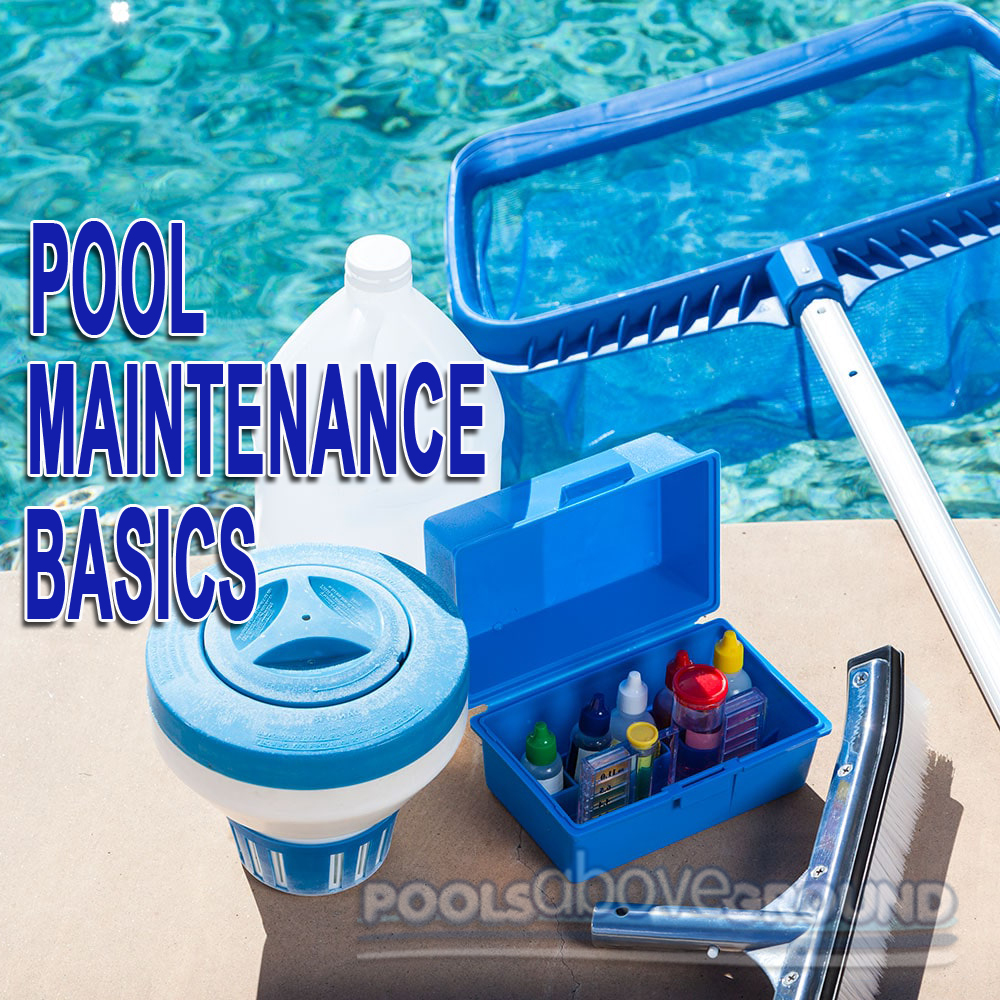Pool Maintenance Basics: Where Pool Owners Go Wrong
Most swimming pool owners don’t plan to make mistakes. However, due to negligence, lack of proper planning, or plain old forgetfulness, they sometimes simply let situations get out of hand. You see, your pool is a very sensitive environment, and many things are required to keep that environment healthy.
For instance, you have the chemicals that keep bacteria and algae from forming. Then you have the filter and pump that strain the water every day. And what about the stabilizer that keeps your water and chlorine from evaporating in the summer sun? All of these need to work together to keep your pool swimmable, so neglecting any one element can quickly lead to disaster.
In this article, we’ll go over a few mistakes that many pool owners (both new and old) make at one point or another. With any luck, you’ll feel inspired to take a few extra steps to make sure your pool gets your very best effort – if only to save time and money later.
Not Doing Basic Maintenance
I’ve said it before, but it always bears repeating: not having a set pool maintenance schedule is the surest way to put your backyard waterpark at risk. Keep in mind that I’m not just talking about skimming and vacuuming here – I’m talking about getting in there with some elbow grease once in a while.
Take your filter, for instance. Not taking time to clean the cartridge or backwash the filter media can hurt your pool in countless ways. Not only do clogged filters reduce water flow and slow the overall filtration process, but this can be just the opportunity algal blooms need to take root in your pool water. Clogged filters can also put unusual strain on your pump, eventually causing the motor to fail and require replacement. Of course, this isn’t a problem if you have a few hundred dollars lying around you want to get rid of, but I don’t know too many people who that describes.
Now let’s consider your strainer baskets. Both your skimmer and pump are designed to collect debris and keep it out of sensitive working parts. However, if you fail to clean these baskets regularly, it can lead to problems just like those listed above. So, get your hands dirty once in a while, and set aside some time each week to make sure all your pool components are cleared of clogs and debris.
Ignoring Your Pool’s Chemical Balance
The fastest way to ruin your and your family’s summer is to leave the chemical balance of your pool to chance. This can quickly lead to everything from equipment corrosion to scaling to algae growth. To make matters worse, any one of these problems can quickly get out of hand if they aren’t dealt with.
It’s also worth noting that chemical imbalances don’t have to be chronic problems. In fact, one pool party full of kids covered in sunscreen and dirt is often enough to deplete your chlorine levels. So, arm yourself with a good testing kit and be prepared with some shocking chemicals. The summer you save might be your own.
Letting Water Levels Get Too Low
One of the most frequent errors I see above ground pool owners making is when they allow their pool’s water level to drop below the skimmer. This means that your pump is now drawing air instead of water – a problem known as “running dry.” This not only completely invalidates the priming you did by reintroducing air into the system, but it will eventually burn up your shaft seal, overheat the pump, and melt the housing. This will lead to you purchasing a new pool pump.
Not Properly Sizing Components
Using the wrong sized components on any part of your pool system is a surefire way to cause problems down the line. Many above ground pool owners will purchase the wrong replacement parts at some point or another. The problem stems from when they attempt to Jerry-rig the ill-fitting part into place rather than drive back to the store to replace them.
Then there’s the problem of oversized pumps. Since so many pool owners think a bigger pump means a cleaner pool, they fail to consider that their new pump will suck up energy at a rapid rate. To make matters worse, these super-powered pumps can cause a lot of damage when paired with undersized pool components, as they put far more strain on them than they were designed to withstand.
Then there’s the pump motor itself. Sure, they need replacing from time to time. But, if you get the wrong size pump motor, you’re going to throw off the entire flow of your pool. For instance, you might kick up the gallons per minute moving through your filter, eventually causing the filter itself to fail. Alternatively, you might end up slowing the flow to a crawl and promoting the growth of algae in your pool.
Speaking of your filter… If your filter is too small, its GPM won’t match that of your pump, which means your filter will be constantly tasked with handling more water and debris than it should. This will almost certainly damage the filter, but it may also burn out the pump as well. Then you’re left with a two-fold problem that attacks your wallet from both sides
Running Your Pump Too Often
Some pool owners are so obsessed with sanitization that they get it in their head they need to run their pool pump 24/7. However, this is not only completely unnecessary, but it’s a good way to raise your electricity bill while prematurely wearing out your pump. Ideally, you want to turn over the water in your pool once every 24 hours. If it’s calibrated properly, this usually translates into running your pump between eight and twelve hours per day. While you can increase this after a pool party or in the case of heavy debris, regularly running your pump more than 12 hours is just a waste of resources.


